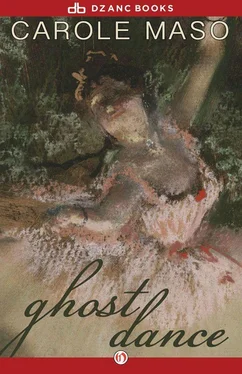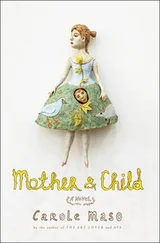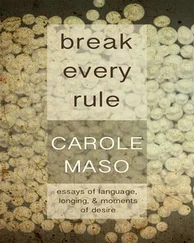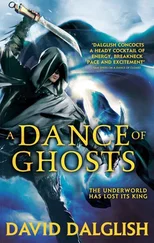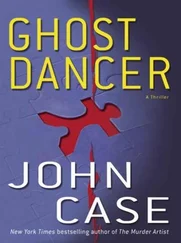Each Christmas my mother and Aunt Lucy made the same call on the upstairs phone. Their voices were always the same: hushed, excited, childlike. “Sarkis Wingarian,” they whispered, all hope. “We’d like to speak with Sarkis Wingarian.” He was the only one in our family missing from the Christmas celebration.
“There is no one here who calls himself that,” a voice on the other end always said.
Without ever knowing him I missed him. I missed him for them, for those two sisters who turned to one another each time and said, “But Christmas was Mother’s favorite season. She loved it so. Surely he doesn’t forget that, too.”
I would never see him, I thought: Grandpa Sarkis, three hundred pounds; Grandpa Sarkis who read to them from the travel section on Sundays; Grandpa Sarkis who worked so hard, who left his daughters, when they were grown, for the old country and who never came back. “In the old country you are worth your weight in gold. In the old country you can grow silk on trees.” In the old country his people were slaughtered like sheep.
Grandpa Sarkis’s voice rises from the warm, moist body of the duck in front of us. “Musa Dagh,” it says. “Never forget.” Fletcher hears it, too. “We will not forget, Grandfather,” he says under his breath. Fletcher cannot forget anything. He includes Grandpa Sarkis in his grace, with the hungry and the lonely, with all the world’s pain, with the Christmas bombings in Cambodia, with the thousand deaths in Central America. The only grandfather I know nods his head. He is with us every Christmas, even the ones after his death. “God bless you, Sarkis,” my grandfather says, lifting his glass.
My mother is decorating the enormous Christmas tree. My father has just put up the colored lights and now lies on the floor watching her. To me this tree seems darker than usual, and I consider that perhaps a few sets of lights have been sacrificed to some project of Fletcher’s during the year. My father gets up and moves to the living room where he resumes his playing at the grand piano.
“I’m dreaming of a white Christmas,” he starts, then begins again, changing the key. “I’m dreaming of a white Christmas, just like the ones I used to know.”
My mother carefully unwraps each ornament from its tissue paper. They are so fragile, so beautiful. One by one she cradles them in her hands, holds them up to the light. She admires especially those that over the years my grandmother has brought to us as gifts. Though my grandmother rarely left Pennsylvania after she arrived from Italy, the ornaments are from all over the world, one more wonderful than the next. Each year is accounted for, every ornament inscribed with a date. It was as if she were keeping time for us, as if without her we would have been totally unaware of its passage.
My mother’s hands tremble slightly as she picks up the eggshell-thin ornament from Germany dated 1942. “Frohe Weinachter” is handpainted with precision in an elaborate calligraphy across its center. She tries putting it on one bough of the tree, then another. She already knows that wherever it is finally placed, near the top of the tree or the bottom, near light or away from light, it will always hang in darkness. She knows that whatever creative powers she can summon, whatever aesthetic considerations of shape or color or pattern her eye or heart or imagination can come up with, it will always remain unapproachable, hanging alone, in horrendous, unspeakable shadow.
“Through the years we all will be together,” my father croons, “if the fates allow.” The melody hangs tentatively in the air. His finger reaches up for the black key but then pulls back. Each word from his mouth stands alone. “Hang — A — Shining — Star — Upon — The — Highest — Bough.”
My mother places each ornament carefully, lovingly, on the enormous tree. She steps back now and then to admire her work. She takes two glass fish from their tissue paper and releases them to swim in a piney sea. She moves a straw angel to the front. “Straw is for luck,” she smiles.
“Mother,” I say, standing next to her, “move those two blue ornaments. Let them float on opposite sides of the great tree. Let their darkness be cast in different directions.”
“No, Vanessa,” she says, “we must not touch.” And she takes my hand. “This stands for something,” she smiles weakly and she kisses my forehead.
Behind my eyes now as I sit alone here this Christmas Day in New York, one year later, a deep, red Christmas candle flowers before me, opening itself up, smelly and dark. I cannot see her anymore, I can only hear her voice, coming out of the dark. “Try not to be afraid,” she says.
Light the candle, I think. Light it now, Vanessa.
I strike the match in my mind and light the candle there in the dark. In its light I can see everything: the tree, the wreaths, the garland, the crèche; every Christmas, every guest; the china, the cheese grater, the nutmeg, the oranges, the cloves.
“Try not to be afraid, Vanessa,” she whispers. “Trust me.”
I trust her.
I do not make the candle disappear; I do not change the stroke in my mind that has brought this blossoming, bloody shape to me. I do not alter anything. I hold it now steady in my mind, hold my mother’s courage up. It grows larger. The candle opens wider. The flame reaches higher and higher. I do not stop it. There are flames everywhere. I watch my father’s piano music slowly curl at the edges and then disintegrate. I smell the charred body of the duck. The punch ignites. The tree crackles and spits. The glass fish crack open. The straw angels hiss and fold into themselves. I destroy everything — the gingerbread boys, the holly, the winter roses. The lead crystal explodes. The piano groans, collapsing in the heat. The strings pop and stretch and melt. The melody my father sings pulls itself apart like taffy. The sisters’ sweet embrace dissolves. When they dial the phone it melts in their hands as they strain to hear a disappearing voice. It all turns to ash as I watch, and I know I am responsible for this. My young parents dance into smoke. My mother’s organdy dress with wings catches fire.
“Try not to be afraid,” she whispers.
“Mom!” I shout, “Mom!” I can’t find her.
“Trust me,” she sighs, through flames.
My mother left for Maine right after Christmas. The season she loved most had exhausted her. She was like one of those exotic, flowering plants of the season that must be taken away from the light so that it might bloom again some other time in the future.
As we sat at the dinner table she had seemed barely able to lift the scrolled, silver spoon to her mouth. Now there would be time for recovery. She would reclaim the silence; she had begun there at dessert. I could see her going. I tried to detain her — anyone would have — but I knew it was already too late. She was retreating with each spoonful of Christmas pudding, with each lovely laugh, each turn of the head. She looked so beautiful in her deep-green velvet dress and pearls, sitting at the lacy table. She put her spoon down and moved her plate slightly, asked for the cream and sugar, and arranged those two pieces at an angle not far from her plate. She was setting up the rocks. She was seeing it now, the wintry coastline of Maine. Her eyes were graying. She smiled. Her hand settled on her cup like a cloud.
When I spoke to her, my voice turned into the voice of the wind and the voice of the ocean. She could not hear my words now, but she looked at me affectionately and nodded, knowing that I knew. She moved her hand on top of mine and edged it toward her scene. I wondered if I would ever get to that white house. “You’ve made us such a lovely Christmas,” I whispered.
She will meet Sabine there and the gray will give way to a pale, pale rose when she sees her. They will enter the uncluttered room, fling open the large French doors, breathe deeply, walk from room to room, collapse onto the beds, embrace. They will sit hour after hour by the fire, watching the sea, taking each other in in silence. At dinnertime Sabine will throw the lobsters into the boiling water in her delicate way, standing on tiptoe to look into the enormous pot, covering her eyes, peeking through her fingers and holding my mother’s hand.
Читать дальше
